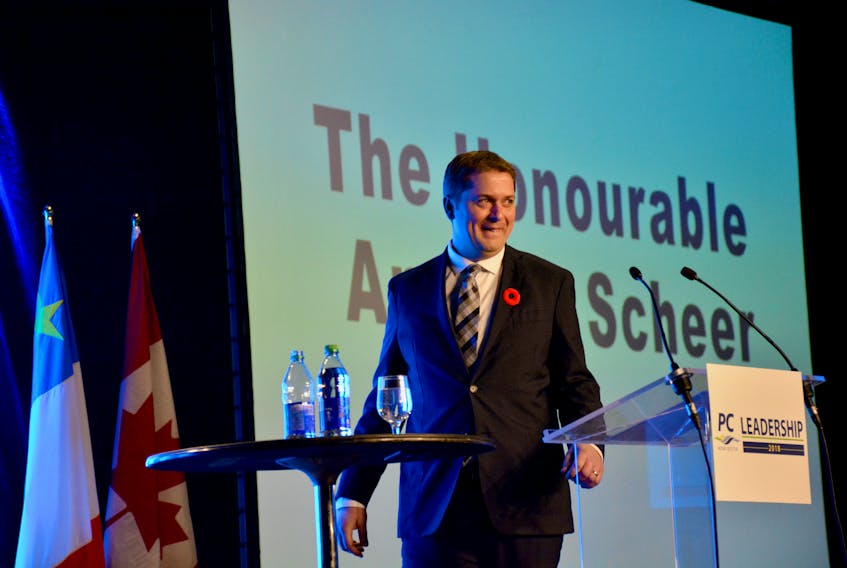WINDSOR, N.S. - All over the country, conservative politicians are tripping over themselves to denounce, decry, and deride the federal carbon tax program — and make no mistake, they’re hoping this strategy will get them some more votes in coming elections.
This was certainly the case at the recent Nova Scotia Progressive Conservative Party leadership convention in October.
Federal Conservative Party leader Andrew Scheer, along with former Nova Scotia premier Rodney MacDonald and several of the candidates for the leadership position were taking up the rallying cry behind fighting ‘Trudeau’s Carbon Tax,’ saying it’ll increase costs for families.
It sounds convincing but is breathtakingly short-sighted — and frankly — anti-conservative.
The carbon tax plan, introduced in 2016, would give provinces the power to administer their own carbon pricing structure. For instance, here in Nova Scotia, the Liberal government’s planned cap-and-trade program was recently approved.
However, several jurisdictions, including Ontario, already have or are planning to dispute federal carbon pricing — and are taking the federal government to court.
But really, a carbon tax is the most conservative way to tackle climate change.
A carbon tax targets the big polluters, giving them incentives to find new ways to reduce their emissions in order to avoid a big bill. This leads to changes in attitude as well as finding new, innovative ways to reduce pollution.
And where that money goes is really up to the provinces. For example, in British Columbia under Christy Clarke’s government, which had a carbon tax well before the federal plan, those funds raised via the carbon tax led to tax decreases in other areas.
So, a government could establish a carbon tax, which, yes, would probably increase the price at the pumps a bit and increase costs for some other items, but they could then, using those new revenues, reduce taxes elsewhere, such as income, making the plan essentially revenue neutral.
This would mean that the big polluters would find new ways to reduce emissions to avoid a large tax bill and maybe families would find alternative forms of transportation or more efficient ways to heat and power their homes. In the end, emissions would go down — that’s been proven in other jurisdictions.
Let’s not forget that scientists have overwhelmingly agreed that humans are causing the planet to heat up, which is increasing the number and intensity of major storms, forest fires, floods, droughts, et cetera. And it’s only going to get worse unless we take real action.
The reason why a carbon tax is a conservative option is that it’s a relatively low-cost, low-impact option when you consider the alternative.
The alternative? Spending billions on disaster relief, shoring up ocean walls, rebuilding or moving entire coastal communities, dealing with huge numbers of climate refugees as people flee the worst of the devastation, rising food costs from diminishing crops, the potential for global conflicts and unrest, and so many more unforeseen costs and impacts.
Because waiting to deal with climate change later is the big tax and spend option we should be trying to avoid. A carbon tax now just makes sense, even for conservatives.









